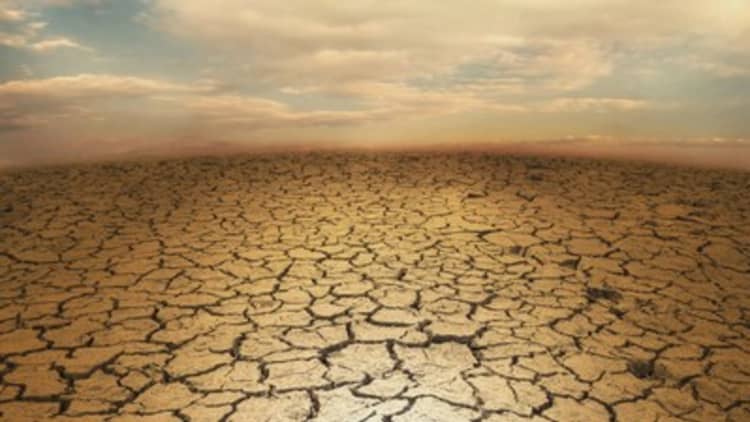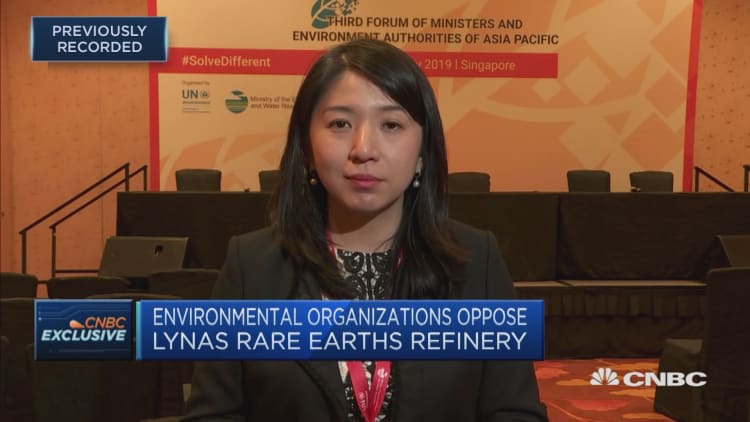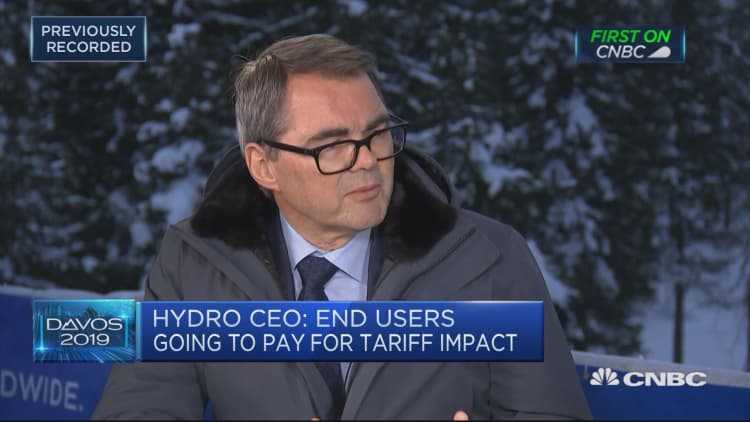
The string of hotter-than-average annual temperatures continued in 2018, as Earth experienced its fourth-hottest year on record, according to NASA and the National Oceanic and Atmospheric Administration.
Also in 2018, the United States suffered 14 weather and climate disasters with costs surpassing $1 billion during a warmer- and wetter-than-average year, NOAA reports.
Global temperatures across land and sea were 1.42 degrees Fahrenheit above the 20th century average, making 2018 the fourth-warmest year since record-keeping began in 1880, NOAA said in a report Thursday.
In a separate report, NASA's Goddard Institute for Space Studies said global temperatures were 1.5 degrees above the 1951 to 1980 mean, also the fourth highest going back to 1880.
The impacts of long-term global warming are already being felt — in coastal flooding, heat waves, intense precipitation and ecosystem change.Gavin SchmidtNASA Goddard Institute for Space Studies director
The 2-degrees Fahrenheit increase in global temperatures since the late 19th century has been driven largely by growing carbon dioxide and other greenhouse gas emissions from human activity, said the institute's director, Gavin Schmidt.
The conclusion reaffirms NASA's long-established finding that man-made emissions are driving climate change, which President Donald Trump and some senior administration officials frequently challenge.

By both agencies' measures, Earth has now recorded its five hottest annual average temperatures in the past five years.
"2018 is yet again an extremely warm year on top of a long-term global warming trend," Schmidt said in a press release.
The strongest warming trends are occurring in the Arctic, where the loss of ice sheets continues to contribute to a rise in sea levels, NASA says. The amount of ocean covered with sea ice totaled about 4 million square miles in 2018, the second-smallest annual average on record since 1979, NOAA reports.
"The impacts of long-term global warming are already being felt — in coastal flooding, heat waves, intense precipitation and ecosystem change," Schmidt said.
In the U.S., much of the Lower 48 was warmer than average, NOAA reports. The biggest divergence from the average occurred west of the Rockies and in the Southeast, and 14 states saw annual temperatures among the top highest on record.
Arizona topped the list with it second-hottest year on record, followed by New Mexico and California with their third- and fourth-warmest years, respectively. South Dakota and Nebraska were the only two states to record temperatures below the 20th century average, the first time since 2014 any state experienced cooler years.
The U.S. also experienced its wettest year in 35 years and the third-highest precipitation going back to 1895. Nationally average precipitation was 34.63 inches, or 4.69 inches above average.
The nation's $1 billion disasters included hurricanes Florence and Michael and western wildfires that unfolded over several months, according to NOAA. Those three events totaled $73 billion of the 14 events' total $91 billion in costs. The events together claimed 247 lives.
WATCH: Norsk Hydro CEO says sustainability and business go hand in hand



